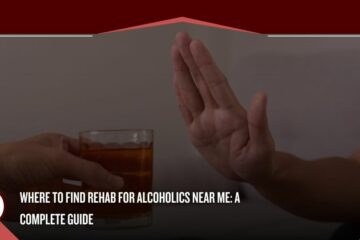 Drug addiction and alcoholism are common problems in America, however, not everyone receives the treatment they need. According to the National Institutes of Health (NIH), 10% of the population has struggled with a substance use disorder and 75% of them never attend treatment.[1]
Drug addiction and alcoholism are common problems in America, however, not everyone receives the treatment they need. According to the National Institutes of Health (NIH), 10% of the population has struggled with a substance use disorder and 75% of them never attend treatment.[1]
One of the main reasons people avoid attending drug and alcohol rehab is a fear of losing their jobs. Whether they are worried their boss will find out about their substance abuse issues or simply cannot take time off, this is a valid concern people face.
Thankfully, there are laws in place like the Family and Medical Leave Act (FMLA) to ensure that you can receive addiction treatment without losing your job.
What is the Family and Medical Leave Act (FMLA)?
The Family and Medical Leave Act (FMLA) is a law that was put into place to ensure that people can receive medical treatment without losing their jobs. To explain, the FMLA allows you to take up to 12 weeks of unpaid leave while ensuring that you keep both your job and your health insurance during that time.
The FMLA allows you to take time off for the following circumstances:[2]
- The birth of a child
- Caring for an adoptive child or foster child within one year of their placement
- Caring for a spouse, parent, or child who has a serious health condition
- Receiving medical care for a serious health condition that renders you unable to complete the essential functions of your job
Thankfully, substance use disorders are considered “serious health conditions” under the FMLA. In other words, you can use this law to take up to 12 weeks of unpaid leave to attend drug or alcohol rehab.
Does the FMLA Work for Addiction Treatment?
While substance use disorders and mental health conditions are covered under the FMLA, there are some qualifications you must meet. To use the FMLA to attend addiction treatment, you have to prove that your addiction is causing significant impairment in your ability to function.
To use the FMLA for addiction treatment, you must:[3]
- Experience significant illness, impairment, or a physical or mental condition that requires inpatient care as a result of your addiction
- Experience a period of incapacity lasting three consecutive calendar days involving treatment from a medical provider at least once
Your addiction must be causing you to be unable to function in your daily life and you must visit a doctor or other form of medical care provider concerning your addiction. If you meet these requirements, you can use the FMLA to take time off of work to receive inpatient addiction treatment.
How to Determine if You Are Eligible for the FMLA
In addition to the above-mentioned requirements, there are other qualifications you must meet to use the FMLA. While these requirements are not specific to individuals suffering from addiction, they apply to anyone attempting to use the Family and Medical Leave Act.
If you meet the following criteria, you can use the FMLA to take time off of work for medical treatment:[4]
- You work for a covered employer
- You have worked for your employer for 12 months or more (non-consecutively)
- You’ve worked at least 1.250 hours during the 12-month period you worked at the company
- You work in a company where there are 50 employees within a 75-mile radius
One of the requirements is working for a covered employer, but what does this mean? Covered employers are any private-sector employer with 50 or more employees as well as school and government agencies. Thankfully, this covers most jobs in the United States.
Ways to Discuss Using the FMLA for Rehab With Your Boss
If you are thinking about using the FMLA to attend drug and alcohol rehab, you must inform your boss. This can be an intimidating and stressful process, as addiction is a very sensitive topic.
If you are worried about discussing the FMLA with your boss, take the following steps:
- Review your company’s policies about sick leave and taking time off
- Be prepared to discuss the FMLA with your boss
- Ask your HR about your options for employee assistance programs
- Be open and honest about your reasons for taking time off
- Emphasize the importance of treatment and how rehab will help you be a better employee
- Make sure your boss understands you are motivated to return to work as soon as possible
- Be prepared to provide proof of your condition
While discussing using the FMLA to attend rehab with your boss can be scary, always remember that your health should be your top priority. Getting the treatment you need will allow you to be the best version of yourself.
Get Connected to a Top-Rated Drug and Alcohol Rehab Program
If you or a loved one suffers from drug addiction or alcoholism, it’s time to seek professional help. At Alamo Behavioral Health, we foster a community that prioritizes fellowship as we guide you toward lasting sobriety.
To learn more about our drug and alcohol rehab programs, contact us today.
References:
- The National Institutes of Health (NIH): 10 percent of US adults have drug use disorder at some point in their lives, Retrieved September 2023 From https://www.nih.gov/news-events/news-releases/10-percent-us-adults-have-drug-use-disorder-some-point-their-lives
- The U.S. Department of Labor: Family and Medical Leave Act, Retrieved September 2023 From https://www.dol.gov/agencies/whd/fmla
- Cornell Law School: 29 CFR § 825.119 – Leave for treatment of substance abuse, Retrieved September 2023 From https://www.law.cornell.edu/cfr/text/29/825.119
- The U.S. Department of Labor: Family and Medical Leave Act (FMLA), Retrieved September 2023 From https://www.dol.gov/general/topic/benefits-leave/fmla





